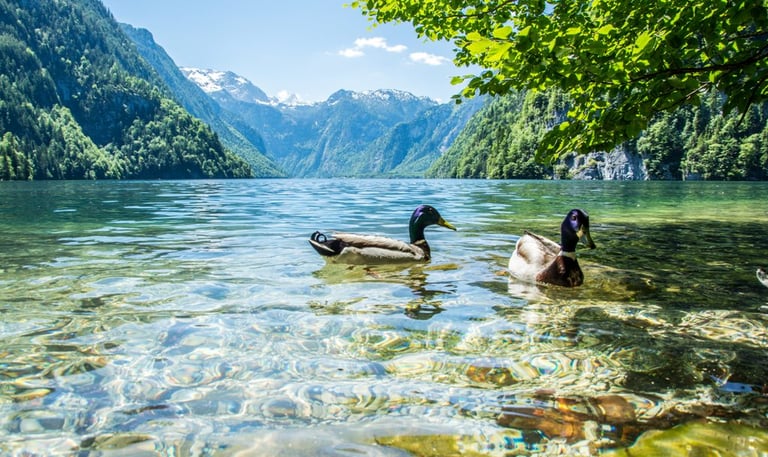The Freshwater Crisis
ENVIRONMENTAL ISSUES
Danny Xu
10/1/20242 min read
Photo: https://www.conservationinstitute.org/wp-content/uploads/2018/05/Freshwater.jpg
From quenching one's thirst to getting rid of waste to providing nutrients for cells and keeping your body healthy, water is a vital resource that all life forms on Earth need in order to survive. However, despite Earth being covered in mostly water, only about 3% of Earth's water is freshwater, the only water that is drinkable for all organisms that intake water. The rest of the water on Earth is salt water, which when drunk, actually make's a person more thirsty. Even though freshwater is one of the most important resources, its accessibility and availability is becoming more limited which can become a huge problem in the future.
Although only about 3% of Earth's water is fresh, about 68.7% of that freshwater is trapped in ice caps and glaciers and about another 30% of freshwater is in the ground leaving only 0.3% of Earth's freshwater on the surface and easy to access. All these factors more freshwater a even more scarce resource.
To make matters worse, our freshwater on the surface is also starting to become polluted due to factors like runoff, untreated sewage, plastic pollution producing microplastics in water, and many more can all pollute freshwater making it undrinkable or needing more money to purify it in order to consume it safely.
Additionally, due to global warming, freshwater is evaporating quicker due to higher drought rates in many areas throughout the world, further limiting the amount of fresh water on the surface. By 2022, humans had already increased the Earth's temperature by 1 degree Celsius and 2 degrees of Celsius increase would result in a great loss in freshwater and rainfall will decrease.
In conclusion, freshwater is very important to maintain all life on Earth and without it, most life forms we know today will disappear. Despite having water purification, these processes can be very costly making it not something to rely on for clean freshwater. This is why being mindful of emitting greenhouse gasses, polluting, and wasting water is important.
Sources:
Murcott, Susan, and Elizabeth Gribkoff. 2022. “Freshwater and Climate Change.” MIT Climate Portal. April 14, 2022. https://climate.mit.edu/explainers/freshwater-and-climate-change.
Environment, U. N. 2020. “Freshwater.” Beat Pollution. February 21, 2020. https://www.unep.org/beatpollution/forms-pollution/freshwater#:~:text=Increased%20discharges%20of%20untreated%20sewage.
Good Food Is Good Medicine. 2022. “Why It’s Important for You to Drink Water and Stay Hydrated.” Good-Food. July 21, 2022. https://health.ucdavis.edu/blog/good-food/why-its-important-for-you-to-drink-water-and-stay-hydrated/2022/07#:~:text=Why%20should%20I%20drink%20water.
Bureau of Reclamation. 2020. “Water Facts - Worldwide Water Supply | ARWEC| CCAO | Area Offices | California-Great Basin | Bureau of Reclamation.” Www.usbr.gov. November 4, 2020. https://www.usbr.gov/mp/arwec/water-facts-ww-water-sup.html#:~:text=Water%20covers%20about%2071%25%20of%20the%20earth.
National Geographic. 2022. “Earth’s Freshwater | National Geographic Society.” Education.nationalgeographic.org. National Geographic. September 27, 2022. https://education.nationalgeographic.org/resource/earths-fresh-water/.


